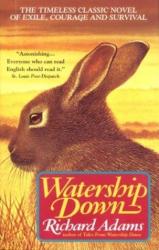
This is a book designed for lovers of Xenofiction (books from non-human perspectives). "Watership Down" is a book about a warren of rabbits. Hazel's brother Fiver has a disturbing vision that prompts him and others to leave the warren. Along the way they run into other, sinister warrens. Interwoven with the story, short segments describing the mythology of El-ahrairah ( a figure similar to Robin Hood).
Some may be familiar with the violent reputation of "Watership Down". This is an earned reputation. Although no main characters die, they do suffer grievous harm. Aside from that, there is a vivid and disturbing description of the original warren's description. However, I felt that the most disturbing parts of the books were the parts exploring the almost dystopian warrens the group meet. If you plan to read this book, keep this in mind. Do not read this if you are sensitive to violence.
If you can get past the disturbing content, this is an excellent read. The characters are incredibly charming. Hazel is an inventive leader, who sometimes acts recklessly to show off. Fiver is a timid rabbit who has glimpses of the future, based on the famous Greek oracle Cassandra. Bigwig is a gruff ally, who occasionally doubts Hazel's leadership, but has a big heart. The plot is equally as interesting, leaving me anxious at parts when things seemed to be going eerily well. The segments regarding El-ahrairah are also entertaining, giving insight into the rabbit culture.
All in all, if you aren't sensitive to violence, I would definitely recommend trying this book.
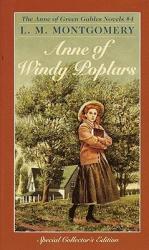
When Anne finishes her schooling at Redmond, she decides to start a new life away from Green Gables. She finds herself in her tower room at Windy Poplars, befriending two old widows, Aunt Kate and Aunt Chatty. She arrives at Windy Poplars looking for a job. She gets one as the principal of Summerside High School. Anne is then made aware that she was not the person they wanted as the principal, but they couldn’t find anyone better. Over time, Anne also becomes friends with the housekeeper, Rebecca Dew. Anne loves her students, but she greatly misses her lover, Gilbert Blythe, who is currently in medical school. Anne of Windy Poplars is a book in the Anne Of Green Gables series. It was less interesting and active than the other books, but it had a decent plot. I am a person who likes action and drama, but this novel did not satisfy me. Contrasting to the other books in the series, it was very drawn out and not very suspenseful. It left me with the urge to not continue reading. I want a book that makes me want to read more and never stop, but this did not meet those expectations. The only reason I kept reading was to keep the series going. I finally finished the book, and I’m glad I did. The storylines following Anne of Windy Poplars were much more interesting, but the books later on had flashbacks and connections to it.
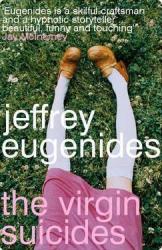
The Virgin Suicides is the elegy of the Lisbon girls, from the perspectives of the neighbors that are still haunted by them. The Lisbon family lives on a quaint suburban street in the Sun Belt, drenched in sunlight and white-washed shingles. Then one year, every Lisbon girl, starting with Cecilia and ending with Mary, commits suicide. This book is the observations and meditations of the boys across the street, the ones who loved them, who obsessed over them, who objectified them, and who watched them die one by one. The girls are doomed from the opening lines. The only question that remains is why they did it, and why our narrators can't let them go.
I read this book because I was told it was a staple of dark academia. It is not, no one here likes school. In reality, it is a treatise on girlhood, in all its insubstantial suffering. The first thing that struck me was the way the author sets the mood immediately. The entire book is dripping with malaise, the suffocating nature of sisterhood and parenthood on full display whenever the Lisbon house is described. The brief gasps of outside life are bright and crisp, while the references to the current day, middle-age life of the narrators is sad and listless. I wouldn't say this book is pleasant to read, but it is gripping in its complete commitment to its mood and setting. On that note, the choice of the author to tell the story entirely from outside perspectives was fascinating. The narrator is only described as "we", as the group of neighborhood boys who obsess over the girls in both childhood and adulthood. One conflict in the book is wondering if we are meant to sympathize with the boys who are scarred from the suicides, or see them as a commentary on the ways that the world seeks to capture and define teenage girls. I ended up seeing it as the latter, which likely made me view this book in better light than many of my peers. The boys actions always have an air of perversion about them, and at the end they seem to realize that all their breaches of privacy and decency have brought them no closer to understanding the girls. Another thing I liked about this book is the way that the girls are given a kind of privacy of thought from the narrators and the readers. Every attempt at scrutinizing their reasoning or emotions or motivations is always followed by a caveat. Nothing is certain with the Lisbon sisters, just the way nothing is every certain when we view the actions of others. The unknowability of their tight knit group gives them a dignity that their neighbors and community seem to want to violate constantly. This book is also a clear censure of suburbia. The neighbors try to do their best to help when they can, but still grumble amongst themselves about the Lisbon family leaving the leaves in their yard the fall after their youngest commits suicide. The great debutante balls and dances of the south are in full swing, but there is an undercurrent of corruption and distortion to the dancing and dating. The sexualization of the girls is also rampant, which, again, makes the book a lot harder to enjoy if you don't see it as a choice by the author in order to comment on it. In short, the suicide of the girls seems like a catharsis, a response to the disgusting and decaying world around them. Everyone around them represses their emotions, from their parents to the boys enraptured by them to their teachers to their peers. They are the only ones who get to set something free. The juxtaposition of the wailing EMTs to the quaint, straining neighborhood further demonstrates their freedom, even in their death.
This book did have problems. A lot of stuff is uncomfortable to read, even if viewed as a deliberate choice. The story often takes winding tangents that serve little purpose besides demonstrating the boredom and trivialities of suburban life. Still, the book is still a fantastic meditation on what its like to be a teenage girl, in all the wonderful and ghastly ways. I would recommend this book to anyone who is looking for good setting, shocking stories, and a good mystery to carry with them!
Reviewer Grade: 12
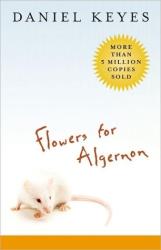
Flowers for Algernon is stunning commentary on the way society perceives intelligence and its connection to personal value. The creative liberties taken with this book to modify diction to match Charlie Gordon's knowledge create a more personal connection with the beloved narrator. I found myself celebrating the first time he used a comma or a metaphor. Although this book was difficult to read at first, I understand that those creative choices enhance the impact of the story later on in the book. The reason I wouldn't call Flowers for Algernon perfect is I feel some of the development in the middle diverted from his climactic conversations with the doctor and professor. The story seems to split into two at once: one of Charlie's emotional intelligence struggling to keep up with his knowledge, and one of his environment's reactions to his sudden genius. Though I enjoy both perspectives, I feel the conjunction creates clutter in what could be one flawlessly streamlined story. However, both stories are executed beautifully, and the journey of Charlie Gordon is both profound and emotionally charged. Flowers for Algernon is certainly a novel I'll mull over in years to come.
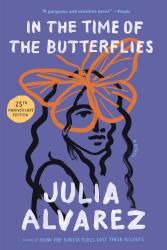
In the Time of the Butterflies by Julia Alvarez is a fictionalized account of resistance to the dictatorial rule in the Dominican Republic inspired by the stories of the three Mirabal sisters who were murdered in 1960. Alvarez expertly captures the terrorized atmosphere of living in a police state and the courage of a few to stand up in resistance. Despite the underlying anguish and dread, the novel is brimming with romance, hope, and faith as Dominicans try to find life under a dictator. Suppose you want a captivating novel enriched with courage, feminism, and intimacy and are willing to read a challenging narrative to stomach. In that case, this anxious page-turner will not disappoint.
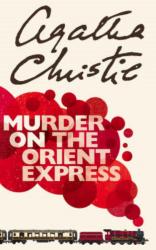
Murder on the Orient Express is a compelling Christie mystery. The book is steady and methodical: after the initial inciting incident, each of the passengers are questioned in order. Then, the evidence is reviewed and the conclusion comes easily to the detective. This novel was a straightforward, easy read, but I found it was better enjoyed by just sitting back and reading. Formulating theories, from the perspective of the reader, is relatively difficult due to key details being under developed when first introduced in the book. Therefore, the detective is better informed than the reader throughout the mystery, which took away some of the intrigue for me. Ultimately, however, the ending was satisfying, and Murder on the Orient Express is a well-written, captivating read.
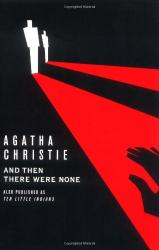
Any fan of mysteries should read And Then There Were None because it is such a wonderfully refreshing book. It is understandable why the book continues to have an impact decades after its release. Following And Then There Were None is not that difficult. Yes, it's a mystery, so pay attention (or at least keep track of who's passing and when), but the book doesn't aim to mislead its readers with unusual text. Guilt and justice are two of And Then There Were None's themes. Every visitor taken to the island is charged with an unfounded murder. As the death toll climbs, visitors struggle in various ways with their own personal emotions of guilt. Justice Wargrave's confession clarifies the notion of justice. Those who loved And There Were None like me should read more of Agatha Christie's work or if you want to read a book similar to And Then There Were None I recommend The Guest List by Lucy Foley. Overall, I loved Agatha Christie's novel And Then There Were None because of how it always kept readers on the edge.
Grade: 8th
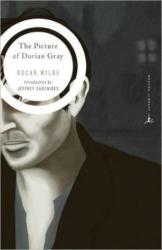
At first, I only picked this book as a classic for school, but I quickly learned it's a classic for a reason. I'd known of the general plot of the novel where a portrait reveals the ugliness of the inside of a man while he remains young, but the way it's written and described makes the full story. The story starts with painter Basil basically putting so much work and devotion into a portrait of Dorian Gray, the painting comes to life. Dorian wishes to stay forever young, and the painting reflects his evilness (vanity, etc.). I enjoyed the sense of mysticism and how everything connects to the theme of appearances are not what they seem. Dorian looks beautiful, but his actions (the thing that makes a person) are grotesque and horrid. The gothic fiction genre is reflected by the dark evilness of Dorian's actions and the magic of the portrait. This book is my favorite class I read this year and the plot surprised me with the characters always returning and a sense of incompletedness when characters leave. If you're looking for a medium-read classic with thought-provoking ideas, then this is for you!
Reviewer Grade 12
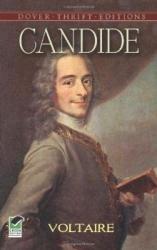
The novel “Candide” is a satire on the philosophy of optimism given by German philosopher Wilhelm Leibniz. The concept of Optimism suggests that everything is going to end well in this best world. It was written by Voltaire, one of the most famous and well-read novelists in the world. The word "Candide" means an innocent, simple, and kind-hearted person. The protagonist of the novel traverses across the world and comes across many disasters and faces many hurdles. Pangloss defends optimism by saying that everything happens in this best world for a reason, and it doesn't matter whether it is good or deplorable.
The story opens with Candide, who lives in a noble castle. In the beginning, he is a strong believer of his master's optimism. But as the story proceeds on, Candide gradually begins to doubt in optimism when he is expelled from his castle for loving the daughter of the Baron. After that, another incident happens as the Bulgarians attack the castle of Baron and burn it to the ground, and they massacre all the ladies and children without mercy. After having seen all this, Candide is forced to say that if this world is the best, then why are all these disasters happening to those who don't deserve to be punished? Optimism is useful, and he calls it
"The mania of maintaining that everything is well when we are wretched."
After being expelled from his hometown, he enters the country of Eldorado and receives a very warm welcome from the people of this country. Here, the people nature lover, and their behaviour towards guests is very good and polite. This place is full of beautiful, prodigious mountains, green fields, people love each other, and Candide falls in love with this place. They are with four soups and two roasted monkeys for dinner without taking money. Candide thinks Pangloss was right: all is for the best. The dilemma of Candide about optimism goes on throughout the novel.
Candide offers us some significant themes. Let’s discuss those one by one. On many occasions, the cruelty of people can also be clearly seen in this book. For instance, on his way to Suriname, he sees a physically impaired negro. Candide asks him who did to you?, and the negro replies that we are given only a pair of cotton drawers as clothing twice an year. We work in sugar mills, and when we are tired of working and try to run away or refuse to work, they (white men) cut our legs and hands. We pay this price for the sugar you eat in Europe. His sorrows wrench us when he says animals are also less miserable than we are and he questions we too are human beings and the children of Adam, then why are we treated so horribly?
The tale of an old woman is also very painful. She is the daughter of Pop Urban X and the princess of Palestrina. She is a beautiful lass of honour with blue eyes and curly hair. While she is travelling with her mother to another place named Gaeta, they are attacked and captured by a Salle pirate. It is not easy for a princess to be taken with her mother as a slave to Morocco. She is still a virgin, but doesn't remain long. The flower that was reserved for the Prince of Massa Carrara is now perished by a negro who thinks he is doing her a great honour. Her mother and other women are raped and torn into pieces by these scoundrels.
Candide is a kind of character that shows we should not lose hope or impulse to reach our destination. For instance, Candide is kicked out of his castle because of his love for Cunegonde, whom he adores so much. then it is also reported that Cunegonde is dead, but he doesn't believe it, and after struggling for a long time, he finds her again and loses her again, but at last he marries his buff because he was determined to find her and never gave up.
The same whimsy is highlighted by Mian Muhammad Bakhsh in his tale “ Saif ul Malook”. The prince falls in love with a fairy named “Badi u Jamal”and sees her in his dreams. He sets out on a journey to find her, even though he doesn't know where she lives. His determination leads him to his fairy.
Giving power to someone over others makes people evil. The person to whom you give power will begin using it against others. As Shakespeare says:
"Power corrupts, and absolute power corrupts absolutely."
With great power there also comes great responsibility. According to the testimony of philosophers, exalted rank is very dangerous. For example, Eglon, the king of Moabites, was murdered by Ehud, and kings like Zedekiah and Jeconiah were made slaves. They all were perished because they had used their power for dark purposes. At the end of the day,
"We have to cultivate our garden.” (Voltaire)
Men are never contented with what they have, and their greed is unlimited. I think Tolstoy was right.
"Men are greedy by their nature."
After becoming the Prince of Persia, Candide rewards significant scientists and literary but they are still not satisfied and happy. Candide is quite with human nature and knows that men will never be satisfied with whatever they get because of their greedy nature, which cannot be changed easily.
In short, Candide is a master piece of Voltaire, and effects its readers deeply. Before reading it, I was desperate to know Voltaire's view on optimism. I enjoyed it a lot and might read it again because of its readable and diverse meaning under the layers.
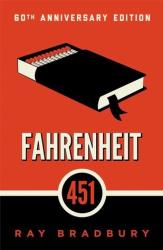
451͒ Fahrenheit is the temperature when paper starts burning. Guy Monteg knows it for sure. He’s a fireman. However, his job is not to put out the fire, but to make it and burn the books. He likes his job, but there is something that he hides from everyone, including his wife.
From every fire, Guy saves a book. In his society, books are forbidden, as they are considered to make people unhappy, evolving complicated emotions and making the readers think. No books means no worries, but a careless life, full of joy and simple entertainment.
One day, Guy Monteg decides that he does not want to live like he used to anymore. He finds a former English professor and asks to teach him to understand what he reads about. Together, they make a plan to save more books in the hope that war will destroy the existing system that they have to live in.
But any secret becomes clear, and the next night Guy gets an order to burn his own house. He destroys it with a flamethrower, as well as his captain, co-workers and the Mechanical Hound.
Monteg escapes. He does not know though, that after all the dangers on his way, he will finally find his destination and meet those whom he will belong to.
It may be hard to feel, but the book is sharp and straightforward. Through the adventure in a fictional universe, Ray Bradbury shows us what might happen, if humanity keeps moving in a direction that will only satisfy basic needs and bring momentary pleasures. I’m sure, some of us can already recognize ourselves with shame in Beatty or Mildred. We’ve already made that first step on the path to the world, where people burn books. This dystopia teaches us that we can always make a difference in the world and change our lives the way that we believe is right. There will be those who will try to destroy you, but there will also be those, whom you will be able to rely on.
The novel creates a tense engaging atmosphere, where you can smell threat in the air and hear the chase behind your back. It does not let the reader go till the very end and stays in mind days after.
Reviewer Grade: 11
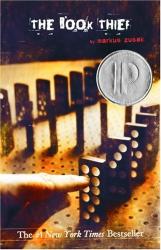
The Book Thief starts in January 1939, in Nazi Germany. The main character, Liesel, was traveling on a train with her mother and brother when her brother suddenly dies. Liesel was only nine at the time, and the wound that was inflicted then, she would bear forever. At her brother's burial site, she stole a book for the first time, earning her the name "The Book Thief". Her story is told from the perspective of Death, who is depicted as an immortal being with feelings and a heart.
Liesel then traveled to Himmel Street, where she lived with her foster parents for the remainder of the book. Liesel made new friends, finds a family, and overcomes the grief caused by her brother's passing there. But most importantly, she discovered the power and impact of words there. The power of words is the central theme or message of The Book Thief.
Throughout the book, Liesel steals more books and becomes braver and more mature. Initially, she was a child who didn't know about all the beauty and ugliness in the world. But as the plot developed, she experienced more of the brutality of WW2 and found her role in her community. After she learned to read, she started to spread the love that was caused by words to her neighbors, by reading out loud during air raids. She also learned to love and understand people better.
The author, Markus Zusak, used the symbolism of colors to illustrate a picture of the world that Liesel lived in. For example, when Death described a scene, the sky was always a different color or texture. When describing a bloody battlefield, the sky was described as plasticky, to show the stillness and emptiness that was caused by the death of soldiers.
I highly recommend this book to readers looking for a thought-provoking and intense book. Liesel's and the other characters' lives were presented in a very relatable way, which will make readers question their own attitudes on life and the world.
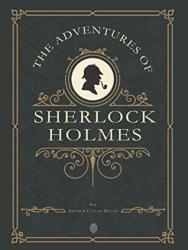
Sherlock Holmes is a very attractive and intresting character.he inspects and sees the Little details that we normally would not associated with how we gather his information. It takes a lot of general knowledge to be able to pull those links together from the people he observes or the evidence that he finds and inspects.
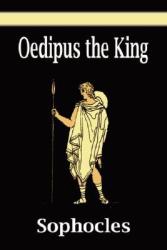
The play Oedipus the king is one of the most tragic play. In the end of the play the protagonist fall into tragic downfall.. However ,I like the characters role of king Oedipus.. Whenever he made decisions to end the plague in order to end his people suffering.
Another ther event I like his character is when he care of his people and considering his people like his own family.. To become an admirable leader ..one should considering his people like his own family.. Oedipus is the best example in this play. Nevertheless this play could not be much interesting in the end of the play, when they found out the true prophecy Jocasta killed herself and king Oedipus taking his eyes off.
However if I were recommended to get a book.. This book will be the best,inorder to know the identity of ourselves.
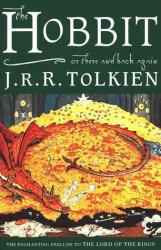
If you are looking forward to diving into the fascinating world of dwarves, wizards and elves and feel ready to fight evil wolves, man-eating trolls and a fire-breathing dragon Smaug, then The Hobbit by J. R. R. Tolkien is definitely for you. A warm children’s fantasy novel, which, however, will captivate the hearts of many adults, takes you to the atmosphere of fairy tales that you were listening to by the fireplace as a kid.
The main character, hobbit Bilbo, at first reminds us of ourselves. He, as all the hobbits are supposed to do, loves eating good food, spending time at home and making their houses cute and cozy. However, his routine crashed as a dropped pot, when a wizard Gendalf knocked at his door. Welcoming him inside, Bilbo could not even imagine that soon he would go on a true adventure all the way to the Lonely Mountain and save an ancient treasure from the claws of a furious dragon. On his way he will meet many different creatures, make friends and enemies, defeat mountain trolls, get captured by giant spiders, get into another captivity right after that, outplay Gollum in the caves and get the magical ring. But what is more important, Bilbo will turn into a brave warrior (what a shame for the entire generations of hobbits!) and a loyal companion.
The author's writing style and original universe makes it impossible to stay indifferent to the story. Kind and soft narration wraps you as an old blanket and keeps you cozy even in the coldest evenings. Younger readers, as well as their parents, will find many life lessons on the pages of The Hobbit, such as why it is important to make smart choices, appreciate your friendships and be ready to help those who are in trouble. The book is an awesome pick for both family time and independent reading.
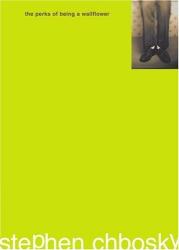
I chose this book because I had watched the movie and was curious as to how the book was in comparison. I found that both were great overall and I don't dislike one more than the other, but the book felt more mature than the movie. Overall I really did enjoy this book, the detail in the book was a great touch, as well as was relatable. Personally, I felt a connection to some of the characters having to leave for college and trying to get the best possible score on the SAT. There is only one thing I did not enjoy about this book though, which is that there is a lot of smoking. The smoking feels a bit excessive, especially when the book follows a freshman in high school, so the amount of smoking I feel like does not portray a true aspect of what that would look like in real life. I would recommend this book to an upper teenage audience since there are mature topics such as brief sexual scenes and smoking. I gave this book 4 stars since I felt like it was very well written and an enjoyable book to read; the deduction of one star was due to the portrayal of smoking. This is honestly a great read that I personally love, I would definitely recommend it!
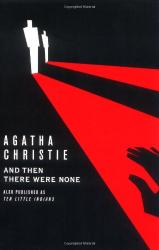
Ten strangers are mysteriously summoned to an isolated island... where murder awaits. Agatha Christie crafted an intricate web of betrayal and suspense, a must-read for any avid bookworm. This read was completely unpredictable - everyone was a suspect until the final, jaw-dropping reveal. The setup, the characters, and the gripping plot made this the best murder mystery I have read in years. With its trademark twists and a chilling ending, no one should miss out on the masterpiece of And Then There Were None.
Grade 11
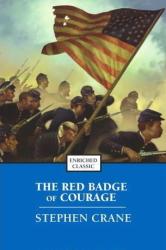
This book was a fascinating piece of literature. The author described war in more of a psychological format, as in the effect of war upon the mind, then a physical format. It reminded me of Robert A. Heinlein's Starship Troopers in its attention to the mind of a soldier. Many Civil War veterans would get a shock meeting Mr. Crane because they thought he had been in the Civil War when he hadn't. It was interesting how Crane referred to the main character, Henry Fleming, as "the youth". He uses similar naming for the other characters, like "the tall soldier," and "the friend." I enjoyed the book, and I'm impressed at how Crane, according to actual soldiers, so acutely described war on a minute-to-minute basis, when at the time of writing, he hadn't ever been in battle. This book almost felt like an experiment of Crane's, like he was just exploring new ideas. The result was international fame and a famous landmark of American fiction.
Reviewer Grade: 9
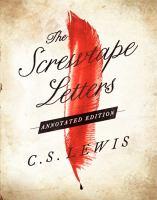
The Screwtape Letters by C.S. Lewis is a novel told in correspondence. Specifically, letters back and forth between a demon called Screwtape and his nephew Wormwood. These demons write to one another about all sorts of things, as families do, but mainly the humans. In this book, humans are the occupation of demons. Keeping them distracted, discontent, and leading them to misery is a merit of any accomplished demon. Readers will enjoy Wormwood's questions of "why must we do this?" or "is there a better way?" as he struggles with his mission to lead humans astray. Screwtape and Wormwood discuss many relevant issues of our own time, and the subject of spiritual warfare is present throughout. The Screwtape Letters is highly recommended for fans of Lewis as an introduction to more serious work or works on theology.
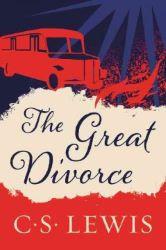
The Great Divorce by C.S. Lewis is a metaphysical novel following a bus tour through the afterlife. Strangers embark on wild journey through Heaven, Hell, and everything in between. As the story unfolds, characters realize every choice they make has a consequence, and their eternal destinies await them. Lewis speaks to universal experiences of grief, loneliness, and tragedy; his characters' stories are slowly told throughout the novel. Readers will enjoy the characters with varying backstories, explaining why they got on the bus tour. Follow humanity and hope unveiled in The Great Divorce. Next Stop: your bookshelf!
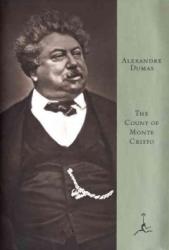
The Count of Monte Cristo serves as a literary masterpiece in both its prose and its raw images of humanity. Following Edmond Dantés on a journey of injustice, desperation, vengeance, success, readers are immersed in over a thousand pages of story about morality and the human experience. Through the chronicles of Dantés, his ruses, and his eventual persona, the Count of Monte Cristo, readers are able to explore France high society during the Napoleonic Wars, but also the injustices within the lower classes, and stories from everyday life of prisoners, laborers, and those outside of the elite. At its core, it's a book of adventure and romance, but the adventure is not without purpose. The manipulation, disappointment, and pure emotion are the driving forces of each character, and what makes the book such a special read.


